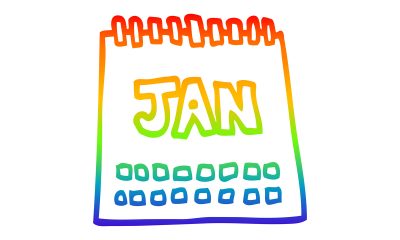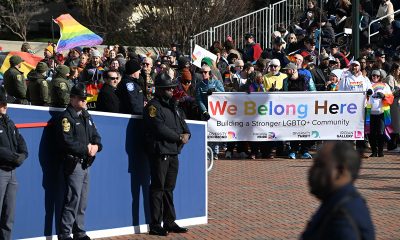a&e features
Gay Men’s Chorus of Washington celebrates 40th anniversary with virtual concert, retrospective
Veteran choir soldiers undeterred through pandemic with Zoom rehearsals
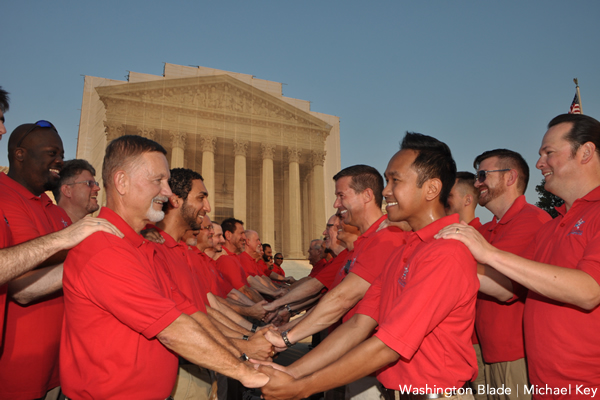
GMCW Turns 40
Streaming begins Saturday, June 5 at 7 p.m.
Available through June 20
Tickets: $25
gmcw.org
Discussion of the Gay Men’s Chorus of Washington quickly becomes emotional for its members both veteran and newbie(-ish). They’re the kind of strong feelings that only exist when one has sacrificed and invested in something.
“It’s an experience that touches our soul in a way that not that many LGBTQ+ people get to experience,” says tenor Javon Morris-Byam, a gay 28-year-old music teacher who joined three years ago. “We have music tying us together and in the end, we make a product that we can share with the public and that’s a humbling experience.”
Steve Herman, 79, is a founding member, though he doesn’t sing. One of a group of “non-singing members,” he joined in June 1981 and has helped over the decades painting scenery, designing ads, serving on the board and more. His partner at the time had joined the chorus as a singer.
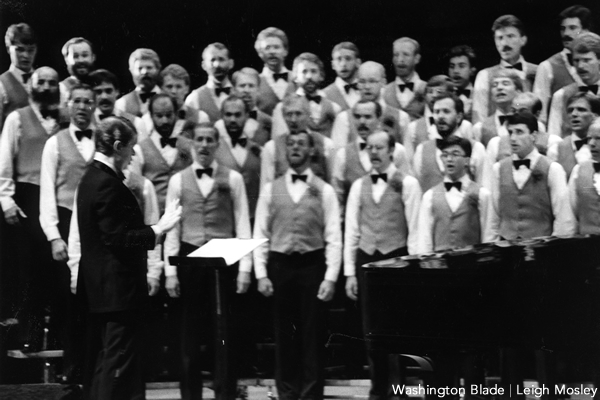
Now retired after 47 years in the federal government, he says the Chorus “has been a major centerpiece of my life.”
“This may sound corny, but I couldn’t imagine my life without the chorus,” Herman says.
The chorus is celebrating its 40th anniversary this weekend with a streaming concert simply dubbed “GMCW turns 40” that can be streamed starting Saturday, June 5 at 7 p.m. and can be viewed until June 20.
Selections will include “From Now On” (from “The Greatest Showman”), “Rise Up,” “Make Them Hear You” (from “Ragtime”), “Truly Brave” and a new song called “Harmony’s Never Too Late!” written for the occasion by Stephen Flaherty and Lynn Ahrens, composers of “Ragtime.” Video clips of past performances will also be included in a montage. Tickets are $25 at gmcw.org.
Thea Kano, the Chorus’s artistic director since 2014 (she was associate director for a decade prior), says “Make Them Hear You” has “kind of become our anthem over the last 10 years,” so contacting its composers for a commission made sense. They premiered it last summer virtually at the Chorus’s Summer Soiree, a COVID-induced postponement of its usual Spring Affair.
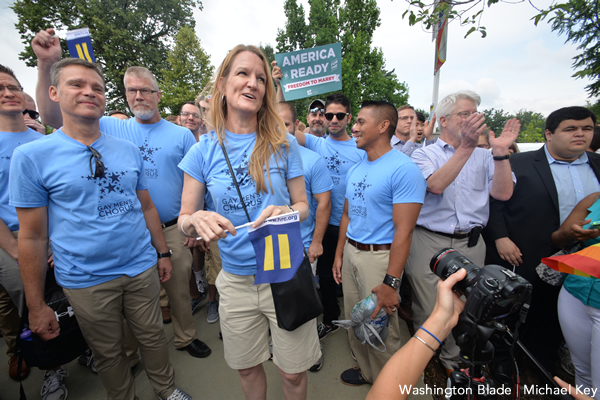
Kano, a straight ally, directs the Chorus with aid from Associate Conductor C. Paul Heins, Assistant Conductor Joshua Sommerville and accompanist Teddy Guerrant. Justin Fyala has been the Chorus’s executive director since 2016. Staff also includes Craig Cipollini (director of marketing), Kirk Sobell (director of patron services) and Alex Tang (accompanist).
Under the main Chorus umbrella are five ensembles: 17th Street Dance, a 14-member performance troupe started in 2016; Rock Creek Singers, a 32-voice chamber ensemble; GenOUT Youth Chorus, a teen choir of about 25; Potomac Fever, a 14-member harmony pop ensemble; and Seasons of Love, a 24-voice gospel choir.
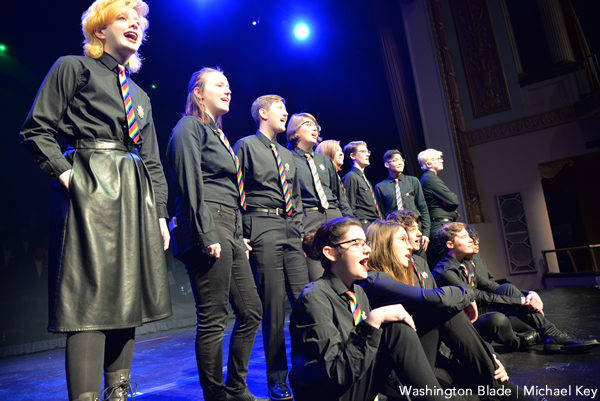
Musically, the Chorus’s repertoire is eclectic.
“(We sing) everything from spiritual to glam rock to punk to traditional classical, and everything in between,” Morris-Byam says. “I love when the chorus is all together and able to produce a big powerful sound.”
Kano says working with Fyala is “a dream” and says under his leadership the Chorus is “in a very healthy financial place, which is wonderful and a very humble thing to be able to say right now particularly given that we’re in a pandemic — that’s not the case with a lot of arts organizations.”
The D.C. Chorus is a quasi-unofficial spin off of its San Francisco counterpart. During an early ’80s national tour, the San Francisco group performed at Washington’s Kennedy Center and had a profound effect on local audiences. Marsha Pearson, a straight woman who lived in Dupont Circle at the time and enjoyed hanging out with gay men, was one such person.
“I couldn’t believe we didn’t have one of these,” she told the Blade 10 years ago for a story on the Chorus’s 30th anniversary. “I thought, ‘We’re the nation’s capital, how come we don’t have this?’”
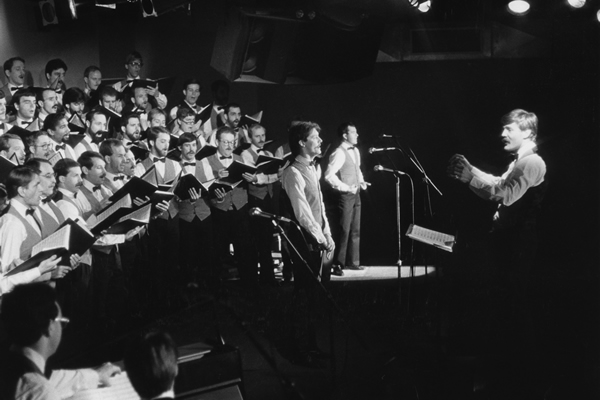
She hand wrote fliers — four to a sheet — had her sister photocopy them at her office, cut them up by hand and passed them out at Capital Pride in 1981. Accounts vary about how many showed up to the first practice at the long-defunct gay community center (no connection to the D.C. Center) on Church Street. Pearson remembers about 30. Others say it was more like 15-ish. It was June 28, 1981 and, by all accounts, an innocuous beginning.
Pearson never sang with the group — it was exclusively a men’s chorus. She asked if anybody had any conducting experience. The late Jim Richardson did and became the first director.
“I still remember the first chord,” Pearson told the Blade in 2011. “It was just a simple thing, you know, like do, mi, so, do, but I just got goosebumps. I was just elated that even one note came out, I was so excited. I got those same goosebumps at the anniversary concert last weekend. I put their CDs on and I get the same thing, especially on certain things they sing. You just can’t believe it sounds so great.”
Click here for more about the history of the group. A bio/history is also available at gmcw.org.
COVID has, of course, wreaked havoc on the operation. Thankfully, Kano says, no members have died from it, though a handful (she says fewer than 10 that she knows of), including Kano, have had it and recovered.
The Chorus continued its Sunday evening rehearsals via Zoom, which, because of the precision required for musical performance, was tougher to take online than, say, a business meeting. It never occurred to the Chorus leadership to take a hiatus.
“I look back now like, ‘Why didn’t we take some time off,’ but I think off the top of my head at the time it was like, “We sing and we’re a social justice organization and community is such a big part of who we are,’” Kano says. “And so for suddenly, with no notice, to have something that we love so much and are so passionate about …. to suddenly just turn the lights off, that wasn’t even an option.”
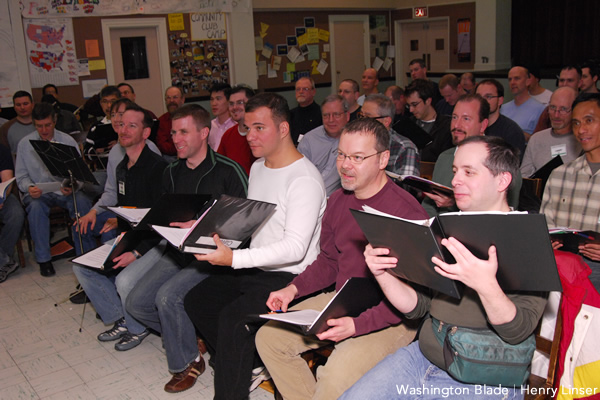
With the Chorus and dancers and GenOUT, there are about 200 current volunteer performers. It’s been slightly higher at times. Some were deterred by the thought of rehearsing via Zoom although some former members no longer in the D.C. area — even a few overseas — rejoined when virtual participation became possible.
The murder of George Floyd and the Black Lives Matter movement last summer and beyond was a galvanizing event. The Chorus responded with its “Let Freedom Sing” concert, which Kano says celebrated the intersection of Black and LGBTQ people.
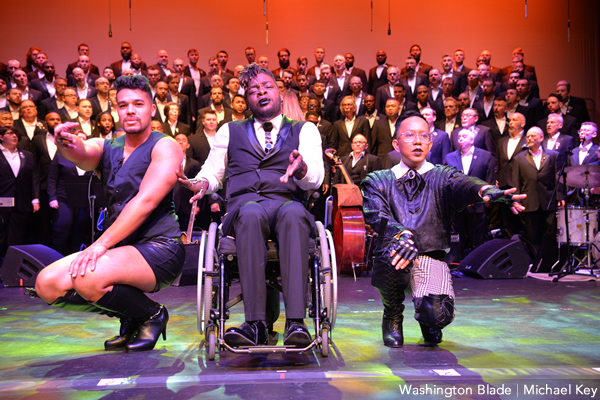
“It was our way of saying we raise our voice in solidarity with those facing injustice,” Kano says.
But does that get messy at times? Surely not everyone in a choir of this size is on the same page politically, even in a progressive city like D.C., right?
As a nonprofit, the Chorus avoids anything ostensibly political. Kano says the issue did arise when they were invited to sing at a Virginia-based gun-reform event last year. They participated, but carefully.
“So anytime you mentioned guns, it becomes political,” Kano says. “It’s not about whether or not we support the Second Amendment. It’s us standing in solidarity with those who have been victims of gun violence.”
Kano says there’s “a very good chance had this been a non-pandemic year,” they would have been invited to sing at the Biden-Harris inauguration, which she says they “absolutely” would have agreed to.
“We did wonder, though, a few years ago what we would have said if 45 were to ask us,” she says. “We didn’t spend a lot of time on it because we knew that wasn’t gonna happen,” she says with a chuckle.
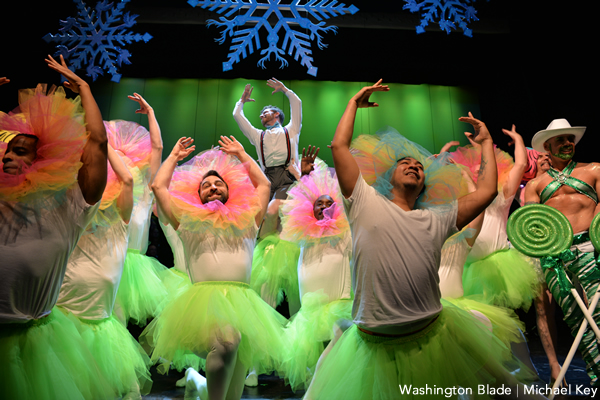
Herman says performing at big, pro-LGBTQ “statement”-type events is woven into the Chorus’s history and is understood.
“Every Christmas Eve, we’d sing for the patients at NIH,” he says. “We still do, only then it was primarily AIDS patients. We sang special concerts when the (AIDS) Quilt was first displayed and when there was a March on Washington. We did a lot of community work and outreach at a time when it was really needed.”
Morris-Byam says even today, with so much progress having been made, the Chorus still is needed. He, by the way, calls Kano “one of the most brilliant musicians I’ve ever met.”
“I believe the Chorus is a strong political statement in itself,” he says. “When we’re making a strong, joyful noise, it’s celebrating everything we are, what we can be, and everyone who has gotten us where we are.
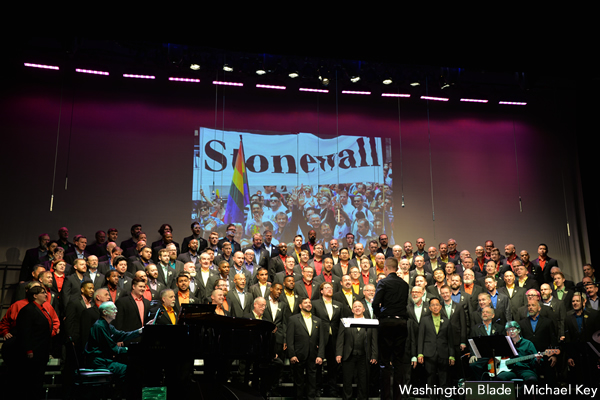
There have been challenges over the years — finding new office space, patching together individual vocal parts for virtual performances — but no warring factions. Kano is, by most accounts, extremely well liked.
The future, Kano says, is bright. She hopes to resume in-person rehearsals in the fall. She spent a big chunk of early lockdown transcribing a Puccini “Gloria Mass” for tenor/bass chorus. She plans to program it with works by Cole Porter eventually.
Ultimately, Kano says, her goals for the Chorus are about making great art.
“Art comes first,” she says. “Because that’s how we deliver our mission. And if we put great art first, it’s going to attract great people. It’s going to both as members and as audience members and patrons, and therefore it’s going to attract great funding, and then all that goes right back into the arts we can further our expansion and our ability to get the mission out.”
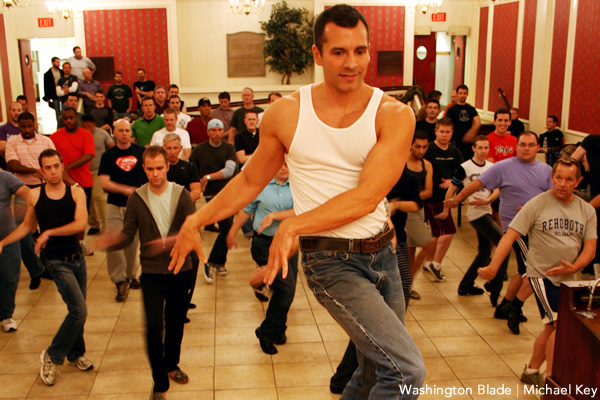
a&e features
MISTR’s Tristan Schukraft on evolution of HIV prevention
From ACT UP to apps, embracing stigma-free care
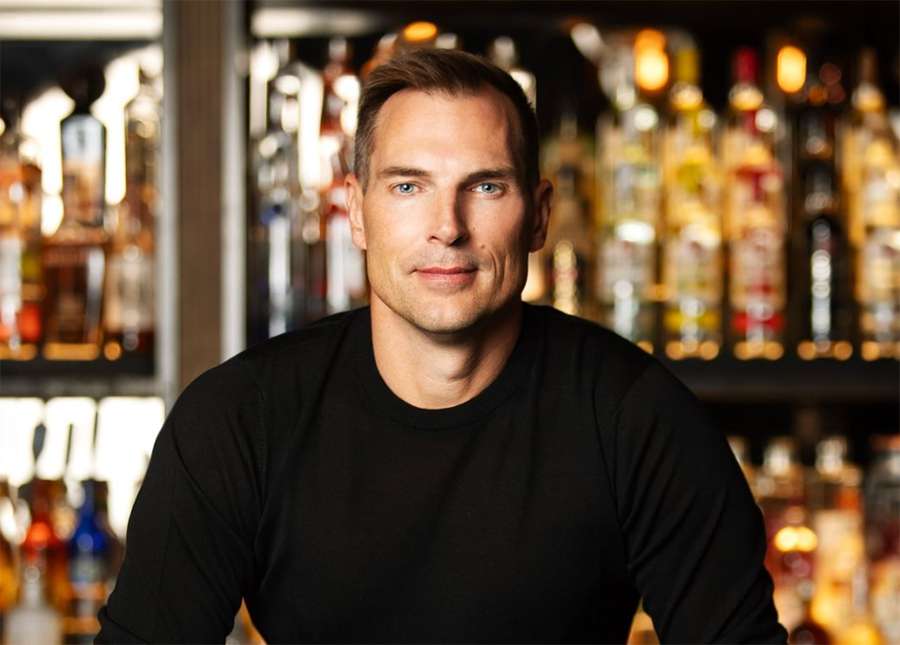
It was not too long ago that an HIV diagnosis was read as a death sentence. In its earlier decades, the HIV/AIDS crisis was synonymous with fear and loss, steeped in stigma. Over recent years, open conversation and science have come together to combat this stigma while proactively paving the way for life-saving treatments and preventive measures like PrEP. Now, in 2026, with discreet and modern platforms that meet people where they’re at in their lives, HIV prevention has evolved from hushed words of warning into something far more sex-positive and accessible. Game-changing services like MISTR are a testament to this shift, showing our community that healthcare doesn’t have to feel clinical or shaming to work. It can be empowering and, dare I say, celebratory.
Few people embody this evolution quite like Tristan Schukraft, founder of MISTR. With one hand in healthcare and the other high-fiving through queer nightlife, Schukraft gets that, from the bar to the bedroom and beyond, prevention happens in person and in real life. His approach has helped turn PrEP, DoxyPEP, and testing into normalized parts of our daily queer life, reaching hundreds of thousands of people across the US.
In our conversation, Schukraft shares candidly about stigma, policy, and why the future of sexual health depends on keeping it real.
BLADE: You have one hand in healthcare and the other in nightlife and queer spaces. Can you share with us how these two spheres impact and inform each other? How do they impact and inform you?
SCHUKRAFT: Honestly, for me, they’ve never been separate. Nightlife and queer spaces are where people meet, date, hook up, fall in love, and make friends. That’s real life. Being in queer spaces all the time keeps me grounded and reminds me who we’re building MISTR for.
BLADE: MISTR markets sexual health in a sex-positive, stigma-free fashion. Can you share with us how you measure the impact of this approach?
SCHUKRAFT: This year, we held the first-ever National PrEP Day. Dua Lipa performed, and Cardi B was there. After the event, Cardi B went on her Instagram live to encourage people to sign up for PrEP.
When you make sexual health stigma-free and sex positive, people talk about it. We see it in how people use the platform. When 700,000 people are willing to sign up, get tested, start PrEP, and add things like DoxyPEP, that tells us we’ve made it feel safe and normal instead of scary or awkward. And then we see it in the results. Since we expanded DoxyPEP, STI positivity among our patients dropped by half.
BLADE: How have you seen the conversation of sexual health in our LGBTQ+ community change in mainstream culture in recent years?
SCHUKRAFT: Ten years ago, nobody was casually talking about PrEP, and if they did, it likely referenced one being a Truvada whore. Now it’s part of the culture. Popstars like Troye Sivan post pictures of their daily PrEP pill on social media. Cardi B goes on Instagram Live telling people to get on PrEP.
For many sexually active gay men, taking PrEP is simply part of the gay experience. For people in more remote areas, it might not be as talked about. Particularly in rural or more conservative places, MISTR can be a life-changing option. No awkward visits to the family doctor or the local pharmacy where everybody knows your business. It’s all done discreetly online and shipped straight to your door.
BLADE: You have publicly argued that cuts to government HIV prevention funding are of high risk. Would you please elaborate for us on what those budget decisions mean on an individual level?
SCHUKRAFT: It means real people fall through the cracks. Someone doesn’t get tested. Someone waits too long to start PrEP. Someone finds out they’re HIV-positive later than they should have. Community clinics will be the hardest hit, especially those in underserved communities. The good news is that MISTR is ready to help people who might lose their access to care. All you need to do is sign up at mistr.com, and it’s totally free with or without insurance.
BLADE: From your (and MISTR’s) perspective, how do these funding cuts threaten ongoing efforts to end the HIV epidemic?
SCHUKRAFT: For the first time, we have all the tools to end HIV. If everybody who is HIV negative is taking PrEP and everyone HIV+ is virally suppressed, we can end all new HIV transmissions in the United States. We have everything we need today. All we need is to get more people on PrEP. Cutting funding risks losing that momentum. Ending HIV requires scale and consistency. Every time funding gets cut, you lose momentum, trust, and infrastructure, and rebuilding that takes years.
HIV transmissions don’t pause because budgets change.
BLADE: In our current climate of decreased federal investment, what role do you feel private healthcare and business should play in sexual health?
SCHUKRAFT: With reports that the current administration is considering cuts to HIV and prevention funding, we face a moment of reckoning. At the same time, some employers are seeking to exclude PrEP and HIV prevention from their coverage on religious freedom grounds. If these challenges succeed, and if federal funding is slashed, the consequences for public health will be devastating. But this is where the private sector must step up to fill the gap, bridge divides, and deliver results.
Businesses have the power and platform to normalize HIV prevention and drive measurable outcomes. At MISTR, we see firsthand what’s possible: since introducing DoxyPEP, STI positivity rates among our patients have been cut in half. But it’s not just about medication. It’s about messaging.
Our sex-positive, stigma-free marketing speaks directly to our community, making sexual health part of everyday life. No awkward doctor visits, no needles, no paperwork — just free online PrEP and STI testing, prescribed by real physicians and delivered to your door. That kind of impact could grow exponentially if more employers embraced this approach and made HIV prevention part of their employee wellness programs.
Employers, this is your call to action. Start by making sure your health plans cover PrEP and DoxyPEP. Partner with platforms like MISTR to give employees private, stigma-free access to care. Offer on-site testing. Talk openly about sexual health, not just during Pride, but every day of the year. This is not political — this is about protecting lives, strengthening communities, and building a healthier, more productive workforce. Because healthy employees aren’t just good for public health — they’re good for business.
When the private sector steps up, outcomes improve. And when businesses align with platforms like MISTR, scaling impact isn’t just possible — it’s happening.
BLADE: Has MISTR experienced any direct effects from these recent shifts in public health funding?
SCHUKRAFT: MISTR’s unique model is totally free for patients with or without insurance, and we don’t cost the government or taxpayers a penny. We are scaling up our efforts to reach people who might be losing their access or care.
BLADE: What would be your message to policymakers who are considering further cuts to HIV/AIDS programs?
SCHUKRAFT: During his first term, President Donald Trump committed unprecedented resources to the Ending the HIV Epidemic initiative here at home. Bipartisan support has shown what’s possible when bold leadership meets smart strategy. To policymakers: I urge you to reconsider any cuts to HIV prevention funding. This is not the time to pull back. It’s the time to push forward. Ending HIV is within reach — but only if government, private industry, and community organizations stand together.
BLADE: What is one perhaps overlooked win from last year that impacted you on a personal level?
SCHUKRAFT: Seeing our STI positivity rate drop by half after expanding DoxyPEP.
BLADE: Looking at the year ahead, what are MISTR’s most significant priorities for sexual health in 2026?
SCHUKRAFT: Expanding access, especially in the South and in communities that still get left out. Rolling out injectable PrEP. And just continuing to make sexual healthcare easier and more normal.
a&e features
Visible and unapologetic: MAL brings the kink this weekend
Busy lineup includes dances, pups, super heroes, and more
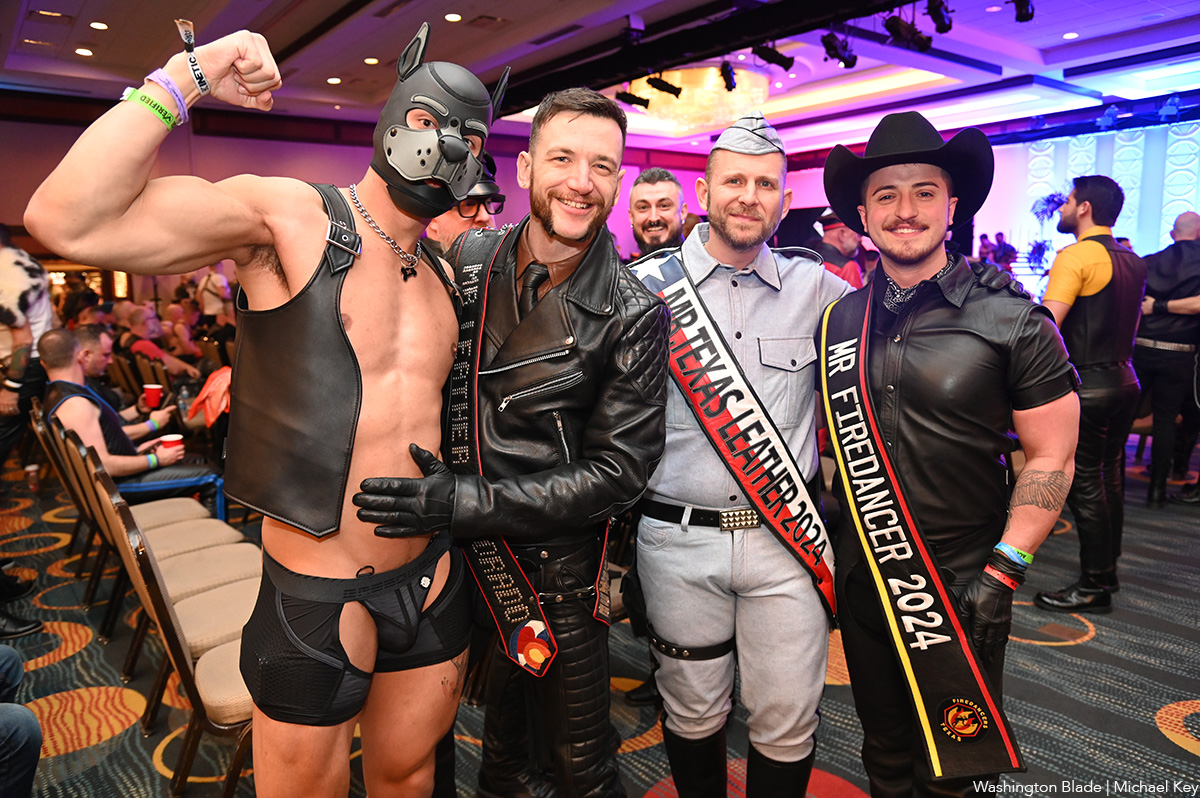
MLK Weekend in D.C. brings the annual Mid-Atlantic Leather (MAL) Weekend. Just a short walk from where Congress has been attacking queer Americans this year, MAL takes place at the Hyatt Regency Washington for several days of intrigue, excitement, leather, and kink.
The Centaur Motorcycle Club — one of several similar groups dedicated to leather in the country — has been hosting MAL in its current form for more than 40 years. Originally a small gathering of like-minded people interested in the leather lifestyle, MAL has grown to include a full four days of events, taking place onsite at the Hyatt Regency Washington (400 New Jersey Ave., N.W.). Select partner happenings take place each night, and many more non-affiliated events are scattered across the DMV in honor of and inspired by MAL.
MAL Weekend has become an internationally renowned event that celebrates fetish culture, yet it also raises funds for LGBTQ organizations, “reinforcing its legacy as both a cultural and philanthropic cornerstone of the global leather community,” according to MAL organizers.
During the day, MAL events at the Hyatt include workshops, social gatherings, shopping, and other in-person engagements for the community.
“The Hyatt underwent an extensive top to bottom renovation after last year’s event,” says Jeffrey LeGrand-Douglass, the event chair. The lobby, meeting spaces, guest rooms, and other areas have been updated, he notes, “so I am very excited for our guests to experience the new design and layout for the first time. And of course as with every year, we look forward to the contest on Sunday afternoon and seeing who will become our new Mr. MAL.”
In the evening, MAL hands the reins to partner KINETIC Presents, the D.C.-based nightlife production company. KINETIC will host four consecutive nights of high-production events that fuse cutting-edge music, immersive environments, and performance. This year, KINETIC is popping open doors to new-to-MAL venues, international collabs, play zones, and a diverse lineup.
According to KINETIC managing partner Zach Renovátes, 2026 is the most extensive MAL production to date. “The talent lineup is unreal: an all-star roster of international DJs, plus drag superstar performances at the Saturday main event,” he says.
Renovátes added that he’s “most excited about the collaborations happening all weekend — from bringing in MACHO from WE Party Madrid, to teaming up with local leather groups, to nonprofit partners, and Masc Diva [a queer nightlife collective].”
Official MAL events begin on Thursday with the Full Package/Three Day Pass Pick-Up from 5:30-8:30 p.m. at the Hyatt.
Thursday night is also the KINETIC kickoff party, called LUST. Running 10 p.m. – 3 a.m., it’s being held at District Eagle. DJ Jay Garcia holds it down on the first floor, while DJ Mitch Ferrino spins in the expansive upstairs. LUST features special performances from the performers including Serg Shepard, Arrow, Chase, and Masterpiece.
Renovátes notes that the LUST opening party at District Eagle coincides with the bar’s grand re-opening weekend. The bar will unveil its new permanent home on the renovated second floor. “it felt like the perfect place to start Mid-Atlantic Leather weekend — right in D.C.’s only dedicated home for kink communities,” he says.
After Thursday night, Friday is when daytime events begin at the Hyatt. The Exhibit Hall, on the ballroom level below the lobby, hosts upwards of 30 vendors, exhibitors, and booths with leather goods, fetish wear, clothes, toys, other accessories, providing hours of time to shop and connect with attendees and business owners. The Exhibit Hall will be open on Friday from 4-10 p.m., as well as on Saturday and Sunday afternoons.
DC Health is once again back at MAL, to provide preventative health services. In the past, DC Health has provided MPox vaccines, Doxy PEP, HIV testing, Narcan kits, and fentanyl test strips. This booth will be open on Friday 4-10 p.m.
Later, at 6 p.m., the Centaur MC is holding its welcome reception on the ballroom floor. After the Centaur’s Welcome Reception, the MIR Rubber Social is 8-11 p.m. A Recovery Meeting is scheduled at 10 p.m.
Many attendees enjoy visiting the guest room levels of the hotel. Note that to get in an elevator up to a hotel room, a staff member will check for a hotel room wristband. Non-registered guests can only access host hotel rooms if they are escorted by a registered guest with a valid wristband. Registered guests are permitted to escort only one non-registered guest at a time. Non-registered guests with a wristband who are already in the hotel before 10 p.m. may remain until midnight. However, non-registered guests without a wristband will not be admitted after registration closes.
Friday night, for the first time, KINETIC Presents is joining forces with WE Party to bring MACHO to Washington, D.C. This official MAL Friday event delivers two stages and two genres. On the UNCUT XXL stage, international Brazilian circuit superstars Erik Vilar and Anne Louise bring their signature high-energy sound. On the MACHO stage, Madrid’s Charly is joined by Chicago’s tech-house force, Karsten Sollors, for a blend of techno and tech house. UNCUT also features the XL Play Zone, a massive, immersive space exclusive to this event. The party takes place at the Berhta space from 10 p.m.-4 a.m..
“This year we’re bringing back the two-room format we debuted at WorldPride for both Friday and Saturday, so attendees can really tailor their experience — whether they’re in the mood for circuit or tech house.” says Renovátes.
Directly after Friday’s UNCUT XXL, UNDERWORLD Afters takes over District Eagle, from 3:30-8 a.m. International DJ Eliad Cohen commands the music.
Saturday, the Exhibit Hall opens earlier, at 11 a.m.. DC Health will also be back from 11 a.m. to 6 p.m.
Saturday is also time for one of the most anticipated events, the Puppy Mosh, running from 11 a.m. to 1 p.m. During the event, pup culture comes to life, when pups, handlers, and friends can enjoy an inclusive, safe pup zone. There is also a Recovery Meeting at 11 a.m., and the IML Judges Announcement takes place at noon.
The popular Super Hero Meet Up will be held 1:30 p.m. – 3 p.m., sponsored by One Magical Weekend, for cosplayers, comic enthusiasts, and their friends.
From 2-6 p.m., the Onyx Fashion Show will take place to showcase and highlight people of color in leather.
Finally, the Leather Cocktail Party – the original event of MAL – will be held 7-9 p.m. in the Ballroom. While this requires special tickets to attend, at 9 p.m. is the MAL cocktail party, which is open to wider attendees.
The last event of Saturday leaves the hotel, again a partnership with KINETIC. Kicking off at 10 p.m. and running until 4 a.m., it’s just the second time that KINETIC’s Saturday night party is an official MAL event and serves as the main weekend engagement.
Saturday night’s centerpiece is called KINK: Double Trouble. The night will feature a first-ever back-to-back set from international electronic music icons Nina Flowers and Alex Acosta on the Circuit/Tribal Stage. The other room – the Tech House Stage – curated by The Carry Nation and Rose, provides a darker, underground counterpoint, reinforcing the event’s musical depth and edge.
Beyond the DJs, KINETIC has called in the big shots for this party: “RuPaul’s Drag Race” legends Nymphia Wind and Plastique Tiara are set to headline. The party also takes place at Berhta.
Sunday, back at the hotel, there will be another Recovery Meeting at 10 a.m., and the Exhibit Hall opens again from 11 a.m.-5 p.m.
At 1 p.m., the anticipated and prestigious Mr. MAL Contest that celebrates the achievements of the leather community will be held in the Ballroom. This highly sought after title gives one man the power to become the Mid-Atlantic Leather man of the year. Sash and title winners must be (1) male, (2), a resident of North America, (3) At least 21 years of age; and (4) self-identify as gay. The first Mr. MAL was crowned in 1985. The Winner of Mr. MAL has the privilege of later competing in International Mr. Leather (IML) in Chicago on Memorial Day Weekend 2025.
From 4 p.m. to 12 a.m., MAL will hold its Game Night for the gaymers in attendance. There will also be a special screening of A24’s new film, “Pillion,” about a man who is swept off his feet when an enigmatic, impossibly handsome biker takes him on as his submissive.
Sunday closes with a community partner event produced by Masc Diva, featuring Horse Meat Disco with support from Coach Chris, at A.I. Warehouse in the Union Market district. It’s the same team that produced HMD during WorldPride at A.I. Warehouse.
Note that there are several types of passes for attendance to the hotel and parties. KINK VIP Weekend Passes include express entry, VIP areas, and enhanced amenities throughout the weekend, while MAL Full Weekend Package holders receive access to the official Sunday closing event.
At last year’s MAL events, KINETIC Presents raised more $150,000 for LGBTQ charities, and expects to match or exceed that impact in 2026.
Renovátes stated that “now more than ever, it’s important to create safe, affirming spaces for our community — but it’s just as important to be visible and unapologetic. We want to make it clear that the LGBTQ+ and leather communities aren’t going anywhere. We’ve fought too long and too hard to ever feel like we have to shrink ourselves again, no matter what the political climate looks like.”
In addition to the KINETIC events, various LGBTQ bars will hold parties celebrating the theme of the weekend. For example, Kiki, located on U Street NW, is hosting a party called KINKI, hosted by DJ Dez, on Saturday night. Sister bar Shakiki, on 9th Street NW, is hosting a party called Railed Out, a fetish-inspired party that features a play zone, on Thursday night. Flash, on U Street NW, will hold its infamous Flashy Sunday party to close out the weekend.
a&e features
Queer highlights of the 2026 Critics Choice Awards: Aunt Gladys, that ‘Heated Rivalry’ shoutout and more
Amy Madigan’s win in the supporting actress category puts her in serious contention to win the Oscar for ‘Weapons’
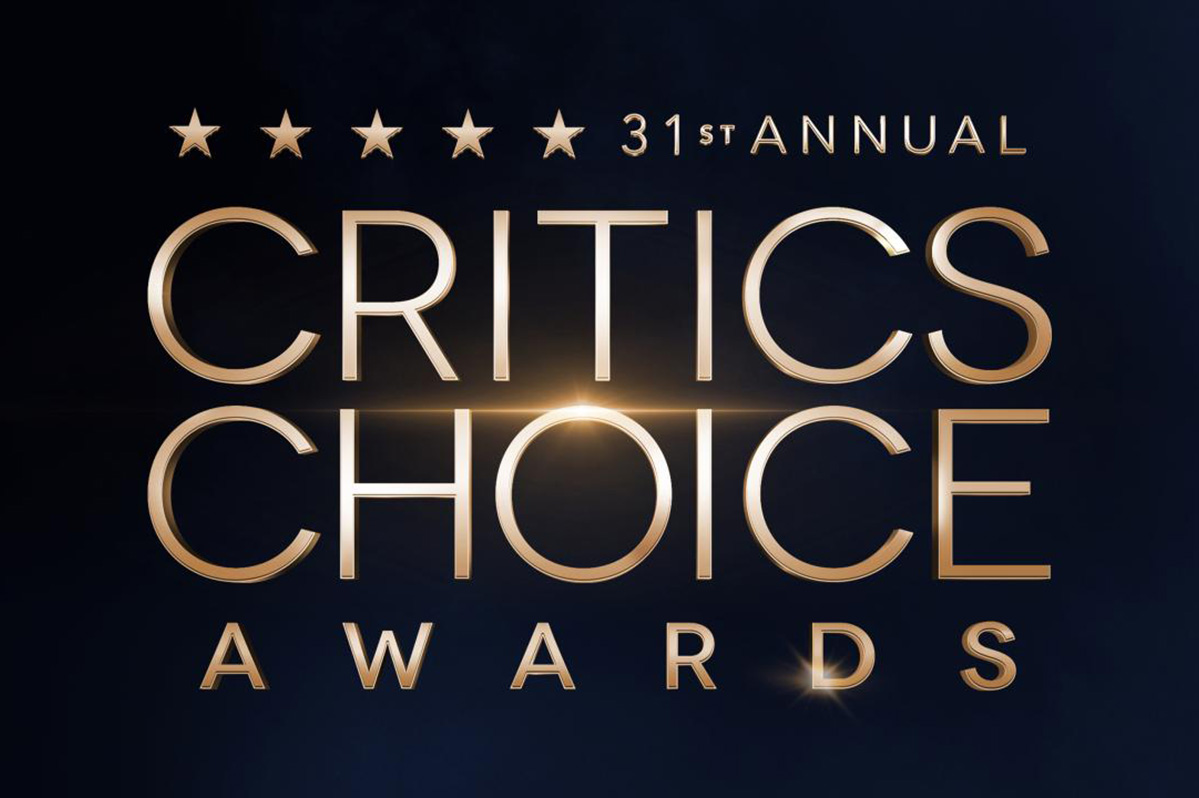
From Chelsea Handler shouting out Heated Rivalry in her opening monologue to Amy Madigan proving that horror performances can (and should) be taken seriously, the Critics Choice Awards provided plenty of iconic moments for queer movie fans to celebrate on the long road to Oscar night.
Handler kicked off the ceremony by recapping the biggest moments in pop culture last year, from Wicked: For Good to Sinners. She also made room to joke about the surprise hit TV sensation on everyone’s minds: “Shoutout to Heated Rivalry. Everyone loves it! Gay men love it, women love it, straight men who say they aren’t gay but work out at Equinox love it!”
The back-to-back wins for Jacob Elordi in Frankenstein and Amy Madigan in Weapons are notable, given the horror bias that awards voters typically have. Aunt Gladys instantly became a pop culture phenomenon within the LGBTQ+ community when Zach Cregger’s hit horror comedy released in August, but the thought that Madigan could be a serious awards contender for such a fun, out-there performance seemed improbable to most months ago. Now, considering the sheer amount of critics’ attention she’s received over the past month, there’s no denying she’s in the running for the Oscar.
“I really wasn’t expecting all of this because I thought people would like the movie, and I thought people would dig Gladys, but you love Gladys! I mean, it’s crazy,” Madigan said during her acceptance speech. “I get [sent] makeup tutorials and paintings. I even got one weird thing about how she’s a sex icon also, which I didn’t go too deep into that one.”
Over on the TV side, Rhea Seehorn won in the incredibly competitive best actress in a drama series category for her acclaimed performance as Carol in Pluribus, beating out the likes of Emmy winner Britt Lower for Severance, Carrie Coon for The White Lotus, and Bella Ramsey for The Last of Us. Pluribus, which was created by Breaking Bad’s showrunner Vince Gilligan, has been celebrated by audiences for its rich exploration of queer trauma and conversion therapy.
Jean Smart was Hack’s only win of the night, as Hannah Einbinder couldn’t repeat her Emmy victory in the supporting actress in a comedy series category against Janelle James, who nabbed a trophy for Abbott Elementary. Hacks lost the best comedy series award to The Studio, as it did at the Emmys in September. And in the limited series category, Erin Doherty repeated her Emmy success in supporting actress, joining in yet another Adolescence awards sweep.
As Oscar fans speculate on what these Critics Choice wins mean for future ceremonies, we have next week’s Golden Globes ceremony to look forward to on Jan. 11.

